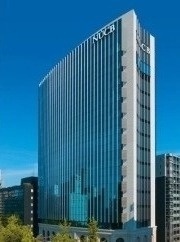Creating new value through self-reinvention
The generation of ideas is one of the most important skills a businessperson can have. Through problem-based exercises, fieldwork, and the case method, students develop creative thinking skills and an entrepreneurial spirit. The Global MBA program, offered in both Japanese and English tracks, encourages new ideas without nipping the seeds of original ideas in the bud while ensuring that the time-tested fundamentals become second nature.
Students will practice the methods and processes learned in the class, analyze the results, and summarize them in an original case study that synthesizes the lessons learned throughout the program. English-speaking international students and Japanese professionals will join forces to create new value by taking up topics related to actual situations faced by businesses defining and redefining their industries.
-
Average age
34
-
Program
2 years
-
Degree
MBA
-
Ranking
# 1 in Japan
-
Language
EN/JP
-
Case Method
100 %
The Global MBA
In addition to the problem-solving management skills acquired in a traditional MBA education, the Global MBA equips students with the ability to observe, analyze, and create new sustainable value from an international perspective. Business leaders need the ability to solve problems and the ability to find problems in all aspects of the organizations they manage. Of course, unprecedented problems often require innovative methods to solve them. These skills are essential for navigating an uncertain future and can be developed by diversifying experiences, interactions, and partnerships.
The Global MBA brings together young businesspeople and seasoned career professionals who are diverse in age, occupation, industry, and international background. Amongst the participants of any class, there may be 40-50 nationalities represented, and just as many languages are spoken. Together, various peers develop a keen awareness of industry conventions and preconceived notions and foster the ability to generate innovative solutions and create new businesses through observation, analysis, and creative thinking.
International MBA Rankings
-

QS Global MBA Ranking
# 1 in Japan
-

QS Global MBA Ranking
# 19 in Asia
For prospective MBA students, the QS Global MBA Rankings serve as a valuable resource, offering insights into the strengths and weaknesses of different programs. Aspirants often use these rankings to make informed decisions about where to pursue their MBA, considering factors like a school's global standing, faculty expertise, and alumni success. Employers also frequently refer to these rankings when assessing the quality of MBA programs and the potential value of candidates holding such degrees.
Environment
Maximize momentum with weekend class
To fully support professionals in obtaining an MBA, all lectures required for the MBA are held on Saturdays and Sundays. Participants can complete each course on two consecutive weekends (4days). Thus, participants in these courses have an opportunity to relate their workplace experiences to the contents of their lectures and immediately apply what they have learned over the weekend to their work.
READ MORE
Innovative practitioner faculty
More than 90% of our faculty members are practitioners who have been active on the front lines of business. Our faculty members who have been at the forefront of management education in leadership development will not only provide new ideas based on their own experience and knowledge but also instill the very essence of creative thinking through their pedagogical approach.
READ MORE
Growth through competition
The meaning of taking on the challenge of an MBA at a business school is to create a strong network that can be an immediate asset. At our school, students with diverse backgrounds and thinking styles form teams to learn the process of creating new value, and then put ideas into practice, and experience success firsthand. The bonds forged between peers are strengthened through regular discussion and collaborative learning, leading to the development of new businesses in some cases.
The Global MBA program is an unparalleled place of growth for those who want to greatly expand their ability to create value. Learn how to think quickly, speak freely, and stimulate new and valuable ideas through goal-oriented discussion leadership fostering mutual respect and lasting connections.
Current students by industry
Current students by age
Interview
Report
-

Rethinking local tourism with Service Design
- Report
There's a historical village in Nagoya known as Arimatsu, a town known for being the location of the Battle of Okehazama in 1560, where Oda Nobunaga defeated Imagawa Yoshimoto and established himse...
READ MORE
-

Electrifying and animating innovation with design thinking
- Report
The essence of design thinking is realizing creative solutions through immersion in a target market--identifying desires and pain points of consumers with empathy, resulting in new products and ser...
READ MORE
-
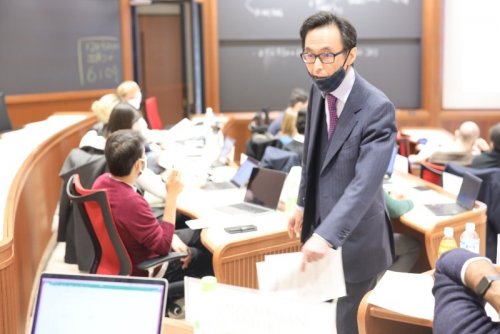
To race or not to race? Rationalizing the irrational in Behavioral Economics & Finance
- Report
Twice a year, Dean Iwasawa rolls up his sleeves and teaches finance courses for the English MBA students: in the spring semester, Corporate Finance provides an introductory course providing student...
READ MORE
-
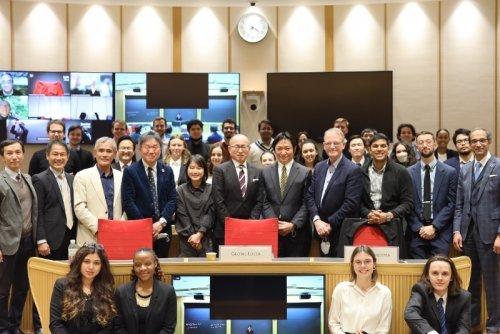
Blazing Trails: 2022 SDGs Project Wraps Up With Proposals on Day 4
- Report
After extensive investigation and research conducted through fieldwork, the participants of the SDGs Project course pitched their proposals before a panel of judges on the fourth and final day of t...
READ MORE
-
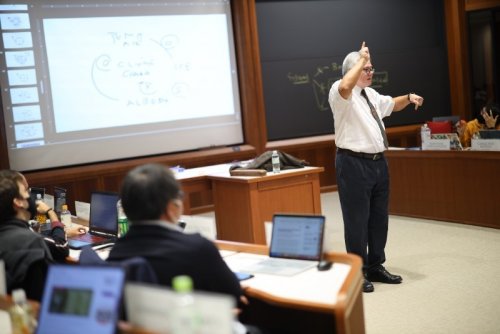
Retaining the most valuable organizational resource: Knowledge Management
- Report
After taking a brief moment to pose for our photographer's camera to a few laughs, Prof. Lim resumes his facilitation of the lively case discussion, which bounces between participants searching for...
READ MORE
-
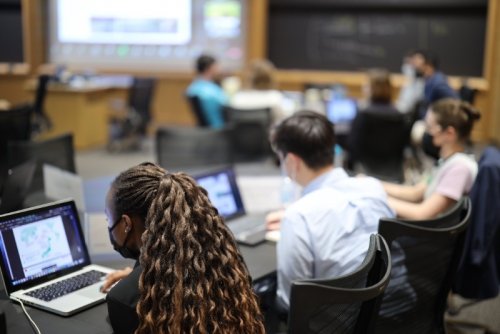
Charting a Course: 2022 SDGs Project Day 3
- Report
On November 4th, the third day of the SDGs Project course brought participants together to synthesize their findings from the research and fieldwork conducted on, between, and after days 1 and 2. T...
READ MORE
MBA Japan
About MBA
MBA stands for Master of Business Administration, and three organizations accredit MBA programs internationally (AACSB, AMBA, and EQUIS). The standard MBA program in Japan and the U.S. requires one to two years of study. The MBA is a degree in business administration, not a proprietary qualification like those for accountants and lawyers.
In the U.S., the home of the MBA, 100,000 MBAs graduate per year. In addition, it has been reported that 60% of general managers in listed companies hold an MBA degree or higher. The two major industries in which demand for MBAs is high worldwide are finance and securities and healthcare and pharmaceuticals. This is because industries that barriers to entry have traditionally protected are undergoing restructuring on a global scale.
| Accreditation | AACSB・AMBA・EQUIS |
| Degree | Executive MBA・MBA・MSc |
| Language | English・Japanese |
| Duration | 2years・1Year |
International Network
Brochure & Application Guide
Download materials that comprehensively introduce programs of study, employment, and international exchange at the NUCB Business School, as well as materials that introduce in detail the schedule and examination subjects of last year's entrance examinations, a collection of entrance examination questions, entrance examination data, and entrance qualification examination forms.
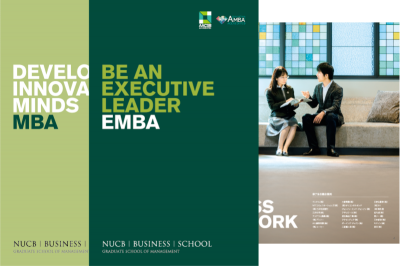

 Brochure
Brochure
 Info Session
Info Session
 Online Application
Online Application
 MBA Basics
MBA Basics


